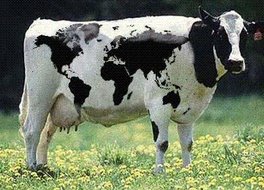Somebody asked Slate.com why British cattle get so many diseases.
Ummm . . .
Let's talk about information bias. To be specific, diagnostic bias and reporting bias. The UK has a fantastic diagnostic service. The UK also reports any diseases it finds. Therefore, the UK reports a lot of disease outbreaks. In sub-Saharan Africa, which has 75% of the world's disease burden according to a recent lecture I attended, there is no money for diagnostic services, so even strict reporting (which is unlikely) wouldn't lead to a lot of outbreak reports. Ditto for Southeast Asia -- diagnostics are lacking and reporting is low. China, on the other hand, probably has good diagnostic services; they don't report many outbreaks because they choose not to report what they find.
The reporting bias is an important point. On Promed, outbreaks in some countries are reported by the OIE or the country involved; outbreaks in other countries are reported by field workers or locals. If we only consider outbreaks in countries where reporting is through official channels, those (few) countries will look disease-ridden compared to the rest.
Okay, there may be some luck (or lack) involved in the case of the UK. I'm not sure Heathrow is a bigger international hub than Schipol or LAX. I'm not sure the UK has a bigger smuggling problem. They just got unlucky with FMD.
In the case of BSE, though, we got lucky that it happened in the UK. They diagnosed it (and fixed it) faster than most countries could have. Think SARS or avian influenza, but with no obvious animal link -- how long would it have taken Thailand to figure it out or China to tell us about it?
Wednesday, October 03, 2007
Subscribe to:
Post Comments (Atom)

1 comment:
Thanks, Becky.
I wish that more would read your blog and get that information straight.
Post a Comment